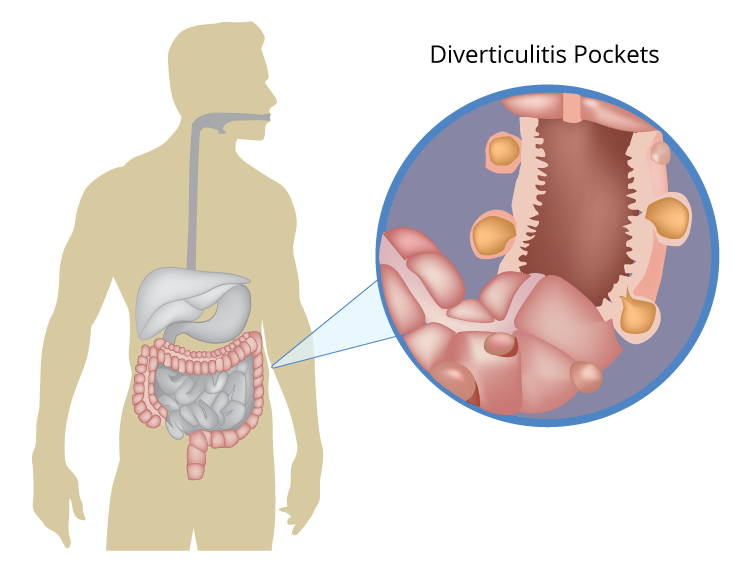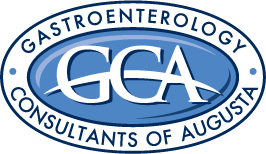Diverticulosis

Diverticulosis occurs when the inner layer of intestines presses through weakened areas of the outer muscular layer causing small pockets to form in the digestive tract. Diverticulitis develops when one or more of these pockets become infected or inflamed.
Symptoms
Diverticulosis usually causes no noticeable symptoms. When diverticula become infected or inflamed, however, patients may experience:
- Abdominal pain; corresponding to where the inflamed diverticula is located
- Nausea
- Vomiting
- Constipation
- Diarrhea
- Fever
Diverticulitis is not typically associated with bleeding. Bleeding from diverticulosis is a separate condition.
Causes
Scientists are unsure why diverticulosis occurs. Past research pointed most often to eating too little fiber, but more recent studies have not conclusively confirmed a connection between fiber and diverticulosis. Diverticula form at the small gaps where blood vessels penetrate the outer muscular layers. Increased pressure from colon contractions is thought to cause protrusion of the inner layers through these gaps.
Diagnosis
Because conditions such as peptic ulcers and IBS cause similar symptoms, doctors usually perform tests to accurately diagnose diverticulitis and diverticulosis. Doctors can arrive at a diagnosis by:
- Taking a medical history
- Performing a physical exam
- Performing diagnostic tests, such as a blood test, colonoscopy, x-rays or CT Scan
- Colonoscopy is generally avoided in the setting of diverticulitis because of the risk of perforation
Treatment
A treatment plan for diverticulitis depends on the severity of the condition. Initially the doctor may recommend:
- Rest
- Pain medication
- A heating pad for pain
- A liquid diet. Initially patients should consume only liquids for a couple days, progressing to thicker liquids, then foods.
- Antibiotics
After the bowel has had time to rest and heal, the doctor will probably recommend dietary modifications. Once diverticula pouches form, they do not disappear. Diverticulitis attacks can reoccur. Many providers believe a high fiber diet can lessen the possibility of recurrence.
A high fiber diet. For more information about a high fiber diet, click here.
Patients with more complicated cases may require hospitalization to dispense IV antibiotics or insert a drain tube in the case of an abscess.
In some cases, patients may require surgery to stop bleeding or to remove diseased portions of the colon.
Complications
It is important for patients with diverticulitis to seek medical treatment. Complications can include
- Perforation, a hole in the colon that allows intestinal contents to enter the abdomen
- Abscess, an infected, pus-filled section that forms outside the colon wall
- Bleeding due to a rupture of the vessels in a diverticular pocket
- Fistula, a tunnel that develops between the bowel and other organs and allows seepage of colon contents
- Stricture, which is when the colon narrows in the affected area
If you are suffering with symptoms of diverticulosis which have you concerned, our office can help. Call 706-868-0104 for more information.
The content on our website is for informational purposes only, and is not intended to diagnose or treat any medical conditions. Always seek the advice of your physician with any questions you may have regarding your health.
